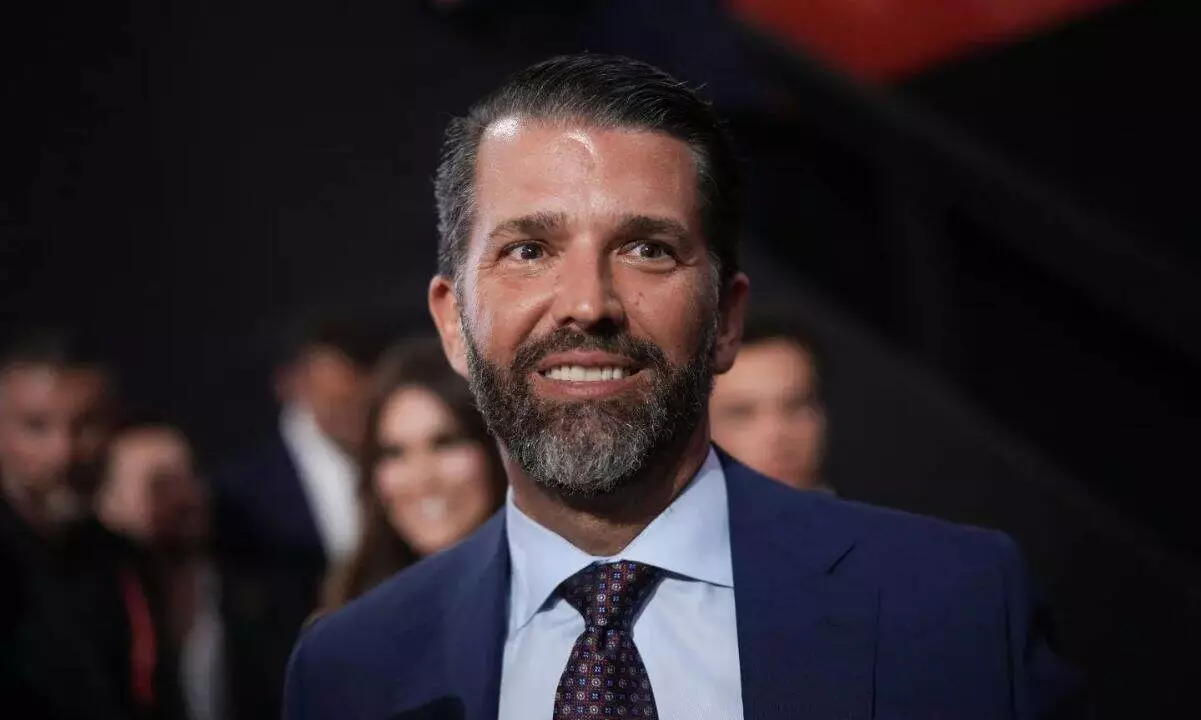The announcement of the ‘Trump Wallet’ has emerged not just as a financial venture but as an unfolding drama that throws into relief the complexities of familial control and brand management in politics. Donald Trump Jr.’s outright denial of the Trump family’s involvement raises several eyebrows, inviting speculation about motivations and truths hidden beneath surface-level assertions. In a world where brands are deeply intertwined with personal reputations, this disconnect could signify a fracture in the family, or perhaps a strategic maneuver to sustain the Trump brand amid controversies. Both he and his brother, Eric Trump, vehemently denied collaboration with the creators behind this crypto wallet. Yet, the question lingers: is this denial genuine, or a tactical avoidance of a troubling financial undertaking?
While a partnership with World Liberty Financial suggests genuine entrepreneurial intentions, Don Jr.’s insistence that “The Trump Organization has zero involvement” is reminiscent of the many layers within the Trump family’s enterprise that often appear both convoluted and murky. This raises a critical point about transparency and credibility, especially when discussing cryptocurrency—a field notorious for its own lack of both. If the Trump name is not attached to this new venture, would its intended users still engage? The optics of this denial cast a shadow over the legitimacy of the endeavor.
A $1 Million TRUMP Giveway? A Gimmick in Disguise?
The promotional tactics surrounding the Trump Wallet offer an interesting case study into the intersection of celebrity branding with blockchain technology. The tagline, “The First and Only Crypto Wallet for True Trump Fans,” is a clear attempt to latch onto the fervor of the Trumpian fan base. Yet, beneath this glitzy surface lies a potential pitfall. Encouraging users to join a waitlist and participate in a $1 million giveaway seems more like a desperate marketing ploy than a robust financial service. While enticing, it drifts into the realm of gimmickry, which does a disservice not only to the product itself but to its users’ financial literacy.
The partnership with Magic Eden, a platform linked to the NFT marketplace, showcases how cryptocurrency is more than a financial product; it’s becoming a critical arena for brand reinforcement and identity politics. When the Trump family’s legitimacy hangs in the balance, the stakes extend beyond healthy financial practices. Would-be investors and fans might find themselves drawn into a world where financial promises are awkwardly laced with ideological fervor, raising serious ethics questions surrounding exploitation of brand loyalty.
Legal Battles Unfold: The Threat of Courtroom Drama
In what seems like a classic case of the family defending its legacy, Eric Trump’s announcement of potential legal action against the creators of this wallet only adds fuel to an already contentious fire. The assertion that “there is no deal for this product” reflects a defensive stance that raises concerns about unauthorized use of the Trump name. It encapsulates the fine line between public interest and brand exploitation, illuminating the broader implications of legality in brand management.
If the Trump family is serious about protecting their name, is litigation the best recourse? In a climate where every move is scrutinized, especially in the political arena, pursuing legal actions might play well with their core supporters. However, the consequences of such legal confrontations could deter potential investors wary of a brand embroiled in disputes. This balancing act of public credibility versus private ambition reflects the complex web woven by political and financial aspirations in the Trump legacy.
Scrutinizing Cryptocurrency Ventures: A Political Hot Potato
As if the internal family squabbles weren’t enough, the burgeoning concern surrounding multiple financial initiatives related to the Trump family has caught the eye of lawmakers in Washington. Given the intricate ties between politics and finance, examining these ventures for potential malfeasance is not just prudent—it’s imperative. Former White House Communications Director Anthony Scaramucci voiced concerns about “pathways for some level of corruption,” highlighting a serious issue in an environment where financial investments frequently intertwine with political capital.
The Senate’s inquiry into these endeavors could signal a shift in how political families engage with emerging finance avenues. Cryptocurrency’s volatile market combined with the potential misappropriation of political influence calls for a reexamination of ethics in fundraising practices. This scrutiny serves as a vital reminder: in today’s interlinked world, the consequences of financial missteps can resonate across the political spectrum.
The perplexities surrounding the Trump Wallet raise vital discussions about integrity, accountability, and the future of political branding in the cryptocurrency landscape. Instead of straightforward expansion, it feels as if this financial venture is teetering on the edge of chaos—testing the limits of brand loyalty amid ethical considerations. As the narrative unfolds, one is left wondering if the very essence of the Trump legacy is at risk, not from external adversaries but from internal miscalculations.

